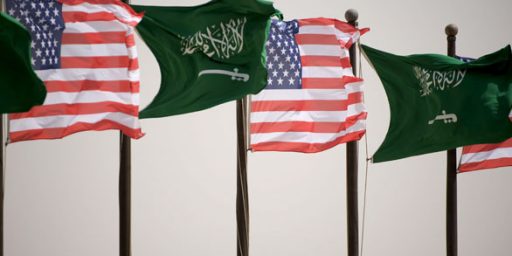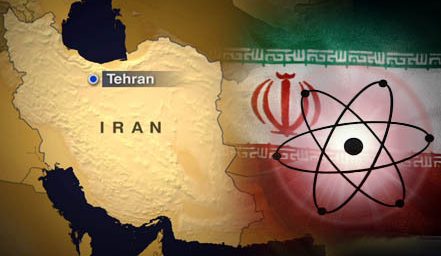Revenge and the History of the Arabs
Turki Al-Hamad, a Saudi-Arabian political analyst, journalist, and novelist who earned his PhD in political science at USC, takes a rather dim view of his own people’s culture:
What is going on in Iraq and even in Lebanon, the Sudan, Algeria, Somalia and other parts of the Arab world is the result of an antiquated, unchanging and unchangeable culture that is self-producing in an odd way and is protected by strong guards to the extent that even a religion such as Islam could only subdue it for a brief period until it contained Islam. We have become sects, schools of thought, ethnic groups, tribes, clans, customs and traditions; everybody has killed everybody in defense of Islam, while it was power, wealth, fanaticism and ignorance that stood behind all of that.
I have no doubt that Arab culture is “antiquated” but to say it is “unchangeable” goes beyond even my natural pessimism. I’ll certainly defer, though, to Al-Hamad and John Burgess on that part of the world.






Arabic as a language is one of the most conservative in the world.
Well, is it culturally relevant today to consider the “Arab world” seperately from the “Moslem world”. Bear in mind that Islam was established in the mid-late 600s. What state of cultural & social evolution was Christianity going through 600 years ago? It wasn’t pretty for us, either…
A disenchanted Christian could write something as scathing about Western civilization. Such generalizations have limited value (unlike the present generalization, which is worth its weight in gold).
Dave: Depends on how you’re measuring linguistic conservatism! Arabic is conservative in that it retains its entire body of vocabulary and some rhetorical stylings.
Finnish is conservative in its grammar, retaining over 20 noun cases.
Polish is conservative in that it’s the only Slavic language to retain nasal vowels (hooked a and e), where all the others lost them.
But Arabic is also incredibly dynamic in building its vocabulary, with new words coming into existence regularly, from things like the Egyptian “istamerced” (to aspire to own a Mercedes) to borrowings from English (like “blogh” for “blog”). It’s also modernized its grammar relatively recently, getting rid of case endings in most spoken forms of the language.
Arabic grammar is actually pretty neat and simple, almost mathematical in its regularity. It doesn’t really need changing.
Great…just wait until CAIR gets a hold of this statement…..
Which statement? Al-Hamad’s?
They’ll have to take that up with him, I guess… either “self-hating Muslim” or “kufr” seem to be the only responses available, outside of, of course, “He may have a point.”
But CAIR purports to represent all Muslims, not just Arab Muslims. And Al-Hamad presents the issue as one of Arab culture, not Muslim culture.
John, I’d forgotten that you and I are both philologists (in the literal sense of “lovers of languages”). Measuring rate of language change is always a smidge controversial but I think it’s clear that some languages are more conservative than others. Lithuanian, for example, is alleged to preserve many of the features of proto-IE.
I really should study Arabic some time but it’s my understanding that the grammar and phonemics of Arabic have been quite stable for quite some little time.
All comes down to definitions, of course… ‘quite some little time’ is squishy to me.
Arabic grammar is really pretty simple. I find it simpler than French grammar, not to speak of Turkish or, I’m told, Portuguese. It’s a bit more complex than English. There are gendered nouns and a dual case. Plurals aren’t nearly as regular as in English, but not impossible. They do some funny stuff with numbers–but nothing as complicated as Hindi. (Ex. ‘1001 Nights’ comes out ‘1000 Nights and a Night’) Those aren’t what make Arabic difficult, nor the alphabet. And most people (excluding the French) manage pronouncing the letters that don’t exist in most European languages. (The French get killed by the three different sounds often transcribed as ‘H’, a letter they don’t like anyway.)
It’s the gross weight of the vocabulary coupled with very strong regional/dialectical vocabulary differences that make it a bear to learn. There are some regional pronunciation issues, but they’re pretty minor, and often humorous.